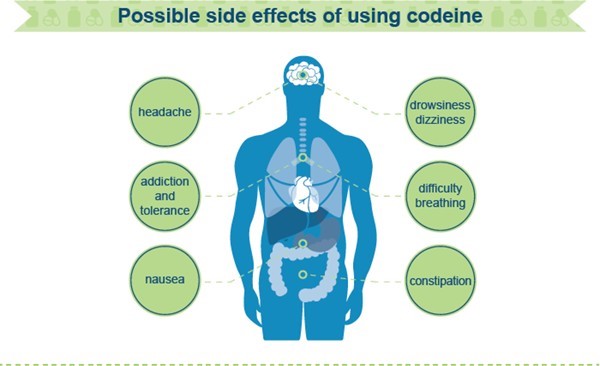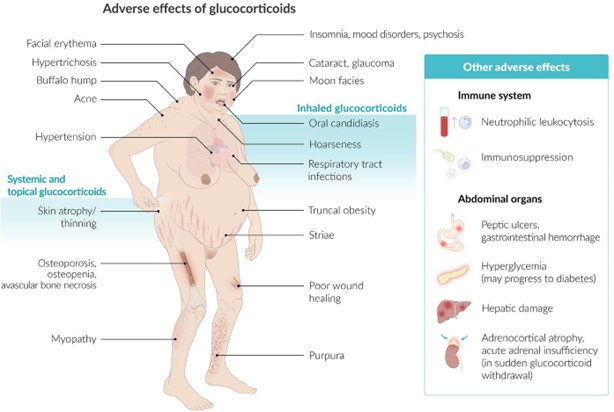nurse is teaching a client who has a new prescription for codeine. Which of the following instructions should the nurse include in the teaching?
"You should expect to experience diarrhea while taking this medication."
"You should change positions slowly."
"You should limit alcohol intake to 12 ounces daily."
"You should take the medication on an empty stomach to prevent nausea.”
The Correct Answer is B
Codeine is an opioid medication that can cause drowsiness and dizziness. Changing positions quickly, especially from lying down to standing up, can increase the risk of falls or accidents.
Instructing the client to change positions slowly helps prevent orthostatic hypotension (a drop in blood pressure upon standing) and reduces the risk of falls.
The other options listed are not appropriate instructions for a client taking codeine:
A. "You should expect to experience diarrhea while taking this medication." While constipation is a common side effect of opioids, diarrhea is not typically associated with codeine use. Therefore, there is no need to expect or warn about diarrhea as an anticipated effect of taking codeine.
C. "You should limit alcohol intake to 12 ounces daily." Mixing alcohol with codeine can have harmful effects, such as increased sedation and respiratory depression. However, it is generally recommended to avoid alcohol completely while taking codeine, rather than setting a specific limit of 12 ounces daily.
D. "You should take the medication on an empty stomach to prevent nausea." Taking codeine with or without food can vary depending on individual factors and the specific instructions provided by the healthcare provider. However, taking codeine on an empty stomach does not necessarily prevent nausea. In fact, taking it with food may help reduce stomach upset for some individuals. It is best to follow the specific instructions provided by the healthcare provider regarding the timing of codeine administration with or without food.

Nursing Test Bank
Naxlex Comprehensive Predictor Exams
Related Questions
Correct Answer is ["A","C","D"]
Explanation
The nurse must consider the following when obtaining a health history for a client with diabetes mellitus who has been taking glucocorticoids (prednisone) long-term for uncontrolled COPD:
- Due to the use of long-term glucocorticoids, the medication must not be abruptly discontinued to avoid adrenal suppression. Abruptly stopping glucocorticoids can lead to adrenal insufficiency and a potentially life-threatening condition. Gradual tapering of the medication is necessary under medical supervision.
- The use of long-term glucocorticoids may contribute to a spike in blood glucose levels. Glucocorticoids can cause insulin resistance and increase blood sugar levels, which can be problematic for individuals with diabetes mellitus.
- The use of long-term glucocorticoids places the client at risk for increased susceptibility to infection. Glucocorticoids can suppress the immune system, making the client more susceptible to infections. This is important to consider, especially in a hospital setting where the risk of acquiring infections may be higher.
Regarding the other options:
The client may develop low blood pressure: While glucocorticoids can cause fluid retention and increased blood pressure, they are not typically associated with low blood pressure.
The client will most likely experience more pain: The use of glucocorticoids is not directly related to increased pain perception. Pain management may be influenced by various factors, but it is not specifically attributed to long-term glucocorticoid use.

Correct Answer is D
Explanation
Acetylcysteine has a strong and distinct odor, often described as a sulfur-like smell. It is important for the adolescent to be aware of this characteristic odor so that they do not become alarmed or concerned when they encounter it.
The other options mentioned are incorrect:
A. It is necessary to monitor your serum electrolyte levels: Monitoring serum electrolyte levels is not typically required with oral acetylcysteine therapy. However, it is important to follow the healthcare provider's instructions regarding monitoring and follow-up appointments.
B. "You should avoid eating eggs": There is no specific dietary restriction or need to avoid eating eggs while taking oral acetylcysteine. However, it is always advisable to follow a balanced and healthy diet.
C. "Your mouth will become dry!": Dry mouth is not a common side effect of oral acetylcysteine. Side effects may vary from person to person, but dry mouth is not typically associated with this medication.
Whether you are a student looking to ace your exams or a practicing nurse seeking to enhance your expertise , our nursing education contents will empower you with the confidence and competence to make a difference in the lives of patients and become a respected leader in the healthcare field.
Visit Naxlex, invest in your future and unlock endless possibilities with our unparalleled nursing education contents today
Report Wrong Answer on the Current Question
Do you disagree with the answer? If yes, what is your expected answer? Explain.
Kindly be descriptive with the issue you are facing.
